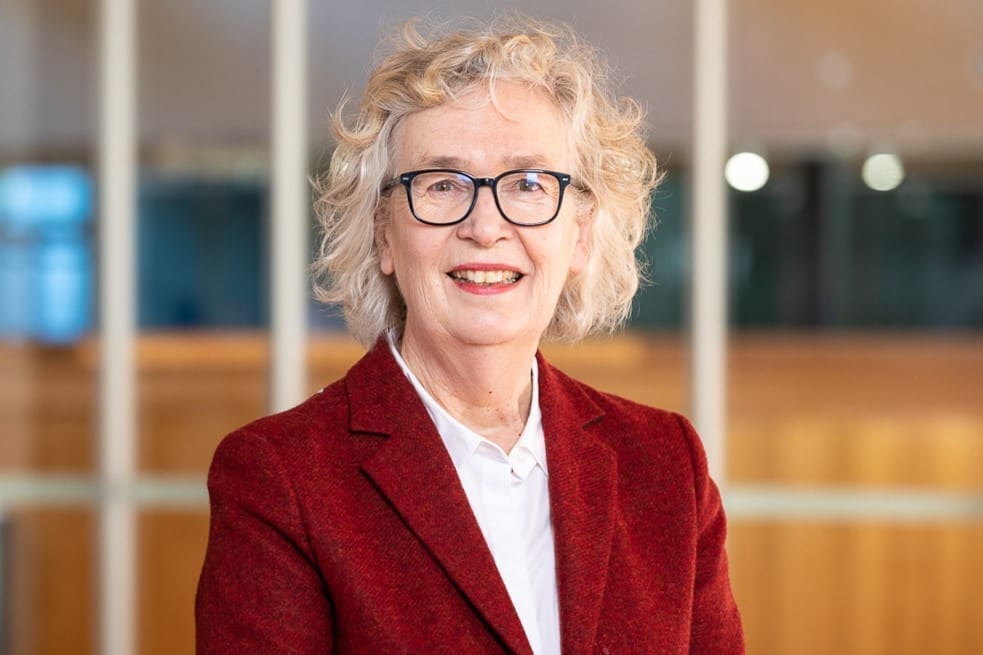This year marks 10 years since the Australian Academy of Health and Medical Sciences was formed. Celebrate with us as we reflect on a decade of advancing research and innovation to improve everyone’s health. This article is the third in a series that highlights 10 of the Academy’s major achievements since it was formed in 2014.
“I think when it comes to setting up a good system that supports research, it starts with leadership, it starts with having the right culture, and having a vision and strategy that embeds research into it.”
Australian health and medical research is internationally recognised, and our health system one of the best performers in the world – but that doesn’t mean we can’t be better.
Evidence shows that the rapid translation of research outcomes into patient care can save lives; the swift development of COVID vaccines during the pandemic saved thousands of lives in Australia and many millions around the world is testament to that.
However, while the emergence of the SARS-COV2 virus mobilised and united multi-disciplinary teams of researchers across Australia in unprecedented ways, the pandemic exposed the critical gaps and barriers across Australia’s health system, and health and medical research sector. Fragmentation across health, academia, government and industry has long been a challenge, but the imperative to address it was laid bare during the pandemic.
In 2022, the Academy released a comprehensive plan to address some of these issues and transform healthcare by better integrating research and health.
The report, Research and innovation as core functions in transforming the health system: A vision for the future of health in Australia, set out a three-year plan to achieve this goal.
“Healthcare and research exist in separate silos and yet the cost and efficiency of research would be massively lower if we had a single integrated silo.”
Monash University Faculty of Medicine, Nursing and Health Sciences Executive Dean Professor Christina Mitchell chaired the AAHMS working group that developed the report.
“The report brought together national and international evidence on the value of integrating research in the health system,” Professor Mitchell said.
“Health systems that foster close collaboration between research and care deliver better health outcomes, patient experiences and increase staff satisfaction.
“This also has a clear economic impact because we know that Australia sees a return of $3.90 for every $1 invested in health and medical research. These endeavours also create high value, knowledge-based jobs, and open up opportunities for commercialisation.”
“I also say that the value of clinicians who do research, it creates optimism in our health system because if you’ve got a problem, you have the tools to fix it. You can investigate what that problem actually is, what that problem actually looks like, and then test ways to solve the problem. And having clinicians embedded in a health system that researches is a really good way of doing that.”
The report identifies 14 recommendations, including five priority actions to:
- Create a new, federalised mechanism to address fragmentation and transform healthcare through research.
- Build a skilled and enabled health research workforce, including world-class clinician researchers.
- Maximise the value of current investments in research and innovation.
- Foster stronger consumer and community involvement.
- Build integrated teams and cross-sector collaboration.
The Academy has been actively engaging with Fellows, sector stakeholders and government officials in pursuit of the report’s recommendations being implemented.
“These challenges are not new. Researchers, health professionals and others across the sector have been calling for this for decades – for instance, many of the same issues were raised in the 2013 McKeon Review,” Professor Mitchell said.
“Many positive changes have been implemented as a result, but there is still much work to be done, and I look forward to sharing our progress.”
Find out more about the report on the project webpage.
“We need more Indigenous researchers. We need more Indigenous researchers who are able to be self-determined without having a system overlaying them saying if you identify as an Aboriginal person or a Torres Strait Islander person that you’re going to want to do all of your research in Aboriginal and Torres Strait Islander perspectives.”
More than 260 individuals participated in consultations, including interviews and roundtables, throughout the project, including:
- healthcare professionals
- researchers
- government
- healthcare administrators
- research funders
- industry
- peak body representatives
- consumers
- Aboriginal and Torres Strait Islander researchers
- individuals from rural and remote settings.
Some of their perspectives are shared throughout the article.

